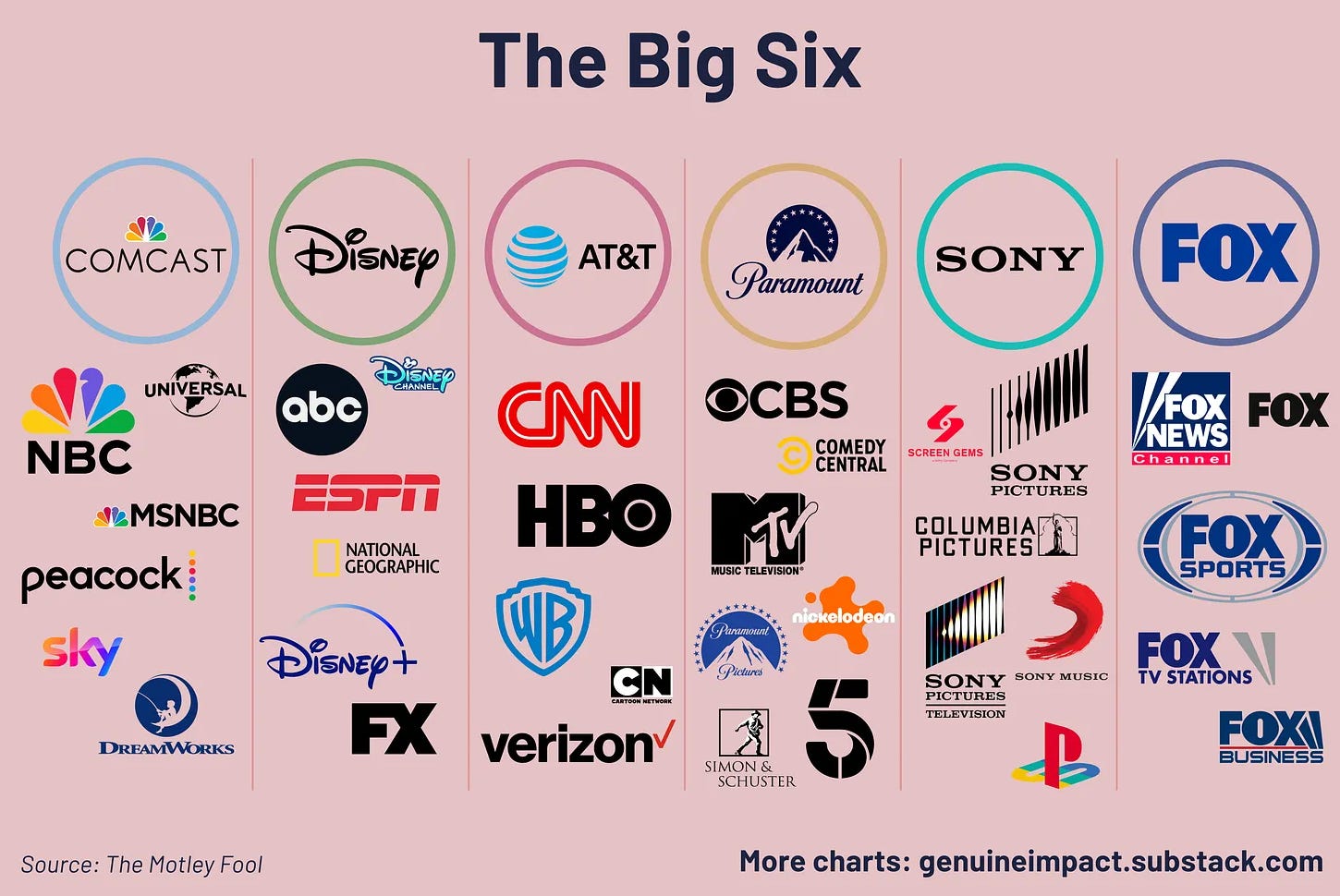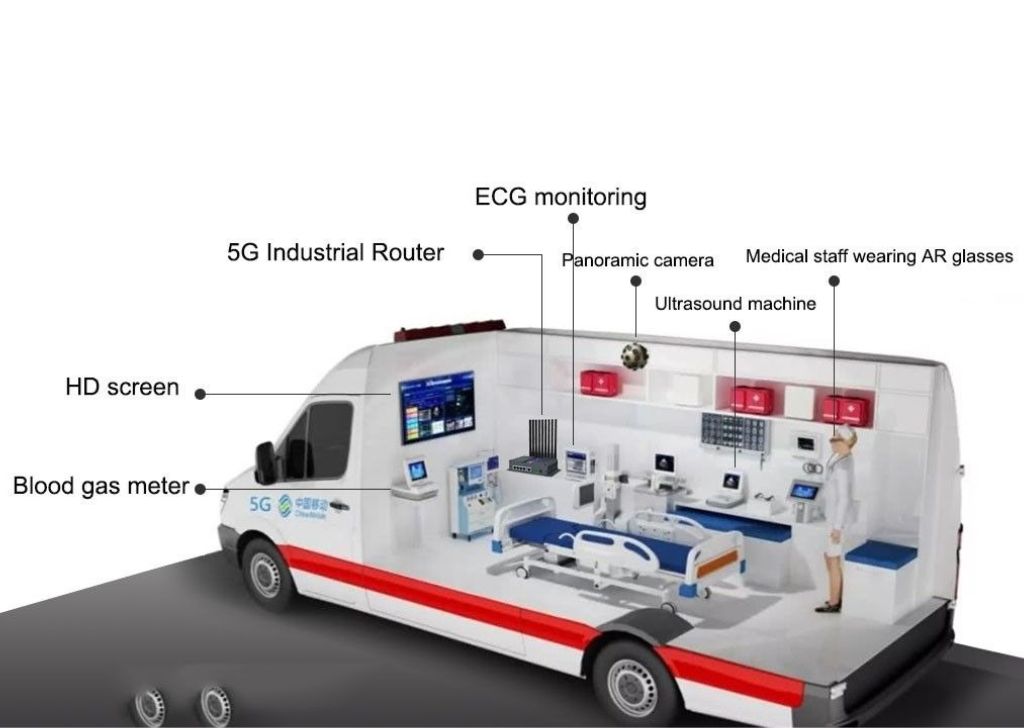Media Consolidation: Implications and Effects on Society
What is Media Consolidation?
 Media consolidation refers to the process where a few large corporations acquire smaller media outlets, concentrating media control in the hands of a limited number of companies. This includes television, radio, newspapers, and digital platforms. Recently, consolidation has accelerated, with powerful media companies like Disney, Comcast, and AT&T owning a significant portion of the landscape we know.
Media consolidation refers to the process where a few large corporations acquire smaller media outlets, concentrating media control in the hands of a limited number of companies. This includes television, radio, newspapers, and digital platforms. Recently, consolidation has accelerated, with powerful media companies like Disney, Comcast, and AT&T owning a significant portion of the landscape we know.
Implications of Media Consolidation
While media consolidation may inherently seem bad, there is a positive side, it allows companies to achieve economies of scale, invest in higher-quality content, and reach larger audiences. These increased budgets and audiences allow for not only the technology used to get better, but it also allows for the smaller companies to be able to have better "above the line" workers. This allows consolidated companies to put more money into their investigative journalism, rather than all the top talent be spread out too much.
However, consolidation comes with significant drawbacks. One of the biggest issues is the decreasing number of different opinions in media. As you can see in the image, companies dominate the media, they control much of the public narrative, limiting the variety of perspectives available to audiences. This is particularly harmful in democratic societies where a free press is vital for holding power accountable. Consolidation can also lead to homogenized content, silencing minority voices and smaller, local media outlets.
Positive and Negative Aspects of Media Consolidation
On the positive side, large media corporations have greater resources, allowing them to deliver comprehensive coverage during crises or disasters. They can invest in innovations that benefit the public and provide more polished content.
The negatives, however, are substantial. Consolidation often leads to bias in reporting when media outlets serve the interests of their corporate owners. Smaller outlets may be driven out of business, creating "news deserts" in communities that lose access to local reporting. This can especially hurt smaller towns and rural areas that rely on community-based information.
Effects on Society
The societal effects of media consolidation are profound, particularly in shaping public opinion and cultural narratives. A consolidated media landscape tends to prioritize stories aligned with corporate interests, potentially ignoring critical issues. Stanford University even writes that if a conglomerate is invested in certain industries, it may downplay environmental or ethical concerns related to those sectors.
This lack of diversity in viewpoints can contribute to polarization. When media content reinforces specific narratives or ideologies, it creates echo chambers where people are exposed only to opinions they already agree with. Additionally, a profit-driven model in media often prioritizes sensationalism over investigative reporting, undermining the role of the press in democratic society.
Differential Impact on Society Segments
Media consolidation affects different groups in varied ways. Wealthier individuals may have access to premium content, while lower-income groups rely on free or ad-supported media dominated by conglomerates. This can create disparities in the quality and type of information people consume.
Since younger generations usually sway towards getting their information from social media they tend to have much narrower views on politics and the world, while older generations may still rely on traditional media outlets, which are increasingly controlled by a few corporations, limiting the diversity of perspectives they receive. Additionally, gender, sexual orientation, and racial identity play a role in how media consolidation impacts individuals. This leaves a lot of the minority groups who are underrepresented in the large media conglomerates to have to cling to opinions that may not be of their best interest.
Impact on You, Your Family, and Your Generation
For individuals and families, media consolidation shapes worldviews and access to information. With fewer independent sources, people may have to seek alternative outlets to get a fuller understanding of issues. This touches back to the fact that poorer people or people in more rural areas are somewhat forced into a narrow view on media because they don't have the access to as much information.
Younger generations, in particular, face a media environment that is nurtured to their shortening attention spans and narrowing worldviews. This deadly duo can decrease their exposure to meaningful, diverse perspectives. As someone who gets their news from social media and word of mouth, this has made me realize I need to take a step away from social media news and actually start reading information rather than it being fed to me.
In one's personal life, media consolidation can limit access to local news. For instance, when local outlets are bought by large corporations, the focus often shifts to national or sensational stories, leaving communities with less relevant information on issues that directly impact them. Especially since the news nowadays is somewhat of a negativity leech.
What I mean by that, is that the news prays on bad news. Especially political news outlets. If you look at any news outlet it's mostly information, but the information that you get from it is typically super negative. I stopped watching the news on TV because of multiple reasons, but one of the main reasons was because every time I turned it on it was someone dying, or war, or a politician or entertainer doing something wrong. You don't hear about much good anymore, and the media companies are doing this on purpose because they then go into their opinions and drive the information they give you into your head.

No comments:
Post a Comment